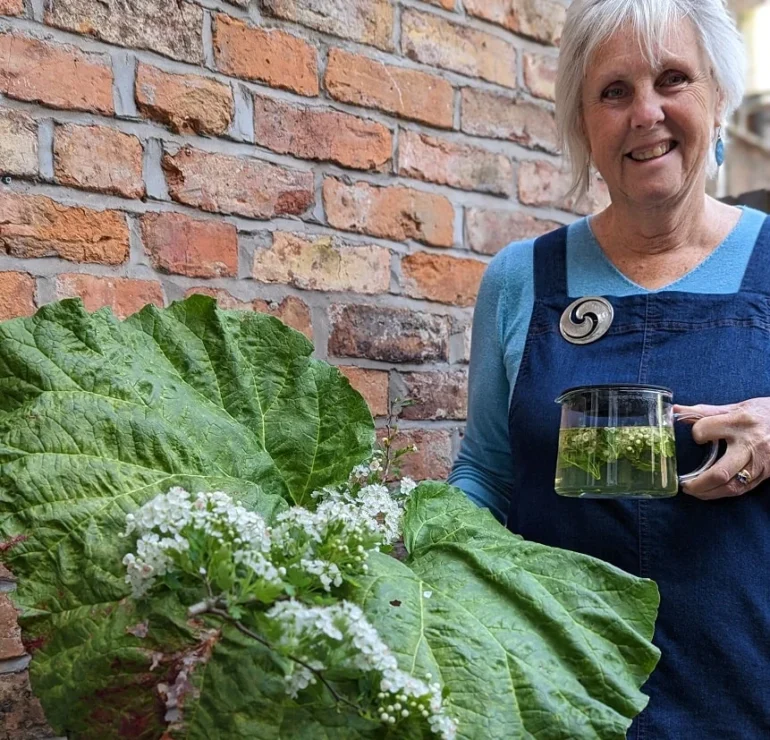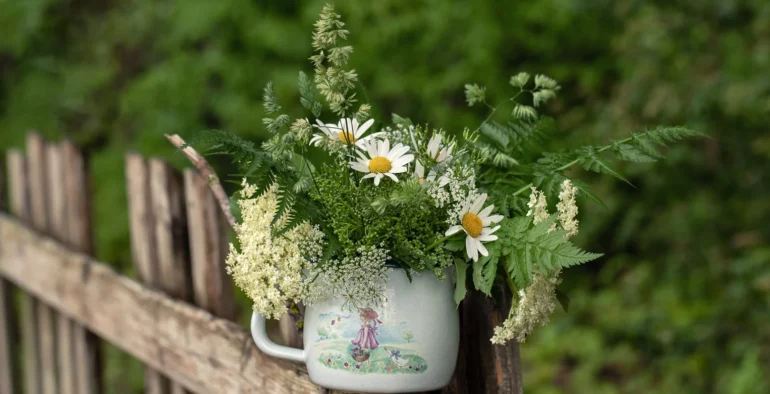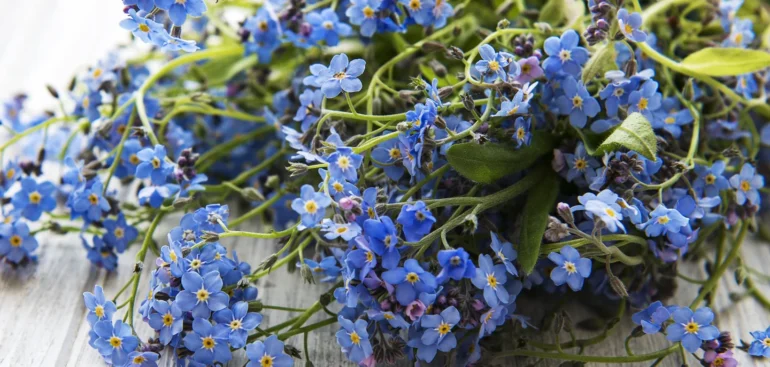-
play_arrow
MIX 56 (HD) CHESHIRE'S BEST MUSIC MIX IN HD STEREO
music_note ONLINE | APP | DAB | SMARTSPEAKER

May is a time for hope, fertility, optimism – and a time for celebration!
It’s time for our monthly check-in with Barbara Wilkinson from the Herb Society – and in this edition we talk about the gifts that nature bring us at this time of the year.
But first, Rhubarb!
Now I don’t mind admitting, I’ve got a mild phobia about leaves – well, to be honest – about any vegetable that is supposed to be healthy for you… but wait. It turns out that Rhubarb might not be that good for you after all.
The whole plant is rich in Oxalate – which can cause illness (even death) if consumed in large quantities. To be honest, the poison is mainly confined to the leaves – so avoid them for sure – but even the stalks should only be eaten in moderation – and for those who suffer with conditions like kidney stones or IBS, avoided altogether.
Nevertheless, Rhubarb is an impressive – even ornamental – plant which starts growing in abundance at this time of the year. And yes. It is a vegetable – not a fruit!

We’ve talked about Elderberries and their incredible health benefits on a previous episode of Herbs With Barbara – but today, it was time to learn a bit more about the Elderflower and to try some tea.
Elderflower, of course – has long been a trendy ingredient of posh sodas and tonic waters – but for positive natural health benefits, now is the time to harvest the young flowers.
We tried some tea. Not my favourite, being honest. Actually, the taste wasn’t too bad – but the rather pungent smell of the brew is a bit off putting. There again, things that are good for you are not always sweet and lovely like the custard buns you get at Sextons Bakery!
If you can get beyond the smell, 3 cups of Elderflower tea a day could be just the thing to help bring benefits when it comes to heart health. Of course, you should always get advice from a Doctor – or a Medical Herbalist like Barbara to see if it will be OK for you.
At this time of the year – with Spring in full swing, many new flowers and plants are emerging – and to the curse of many gardeners out there – so are Dandelions!
These instantly recognisable flowers are often just thought of as weeds – but there’s more to this humble plant than meets the eye.
The flowers, leaves and roots have been used in traditional medicine for centuries – and are said to contain many beneficial antioxidants – including beta carotene.
For those creative cooks out there – dip the flowers in tempura batter and you’ll have a delicious snack which is high in Vitamin C.
Even the roots can be baked, dried and ground to make an interesting coffee substitute!
Be inspired with more ideas at the Herb Society!
Written by: ian
Similar episodes
Spain Without the Plane
The ultimate adventure to Ibiza by boat and train by Ian James. Order your signed copy here!
Artices








Post comments (0)